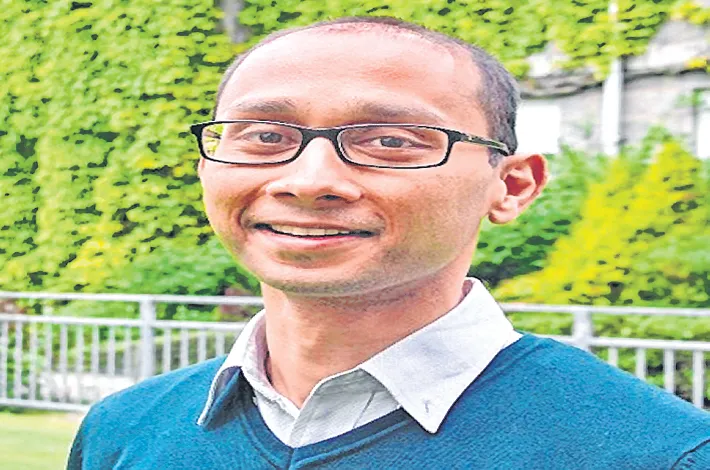Nutrition Is More Important Than Ever; A Promising Career
28-05-2025 12:00:00 AM

Long before nutrition became a modern science, ancient cultures understood that food was fundamental to health. In Ayurveda, one of the oldest medical systems in the world, diet is central. As the tradition teaches: “When diet is wrong, medicine is of no use; when diet is right, medicine is not needed.” Traditional Chinese Medicine (TCM) also places food at the heart of healing, using it to balance the body’s energies through the principles of Yin and Yang. These traditions remind us that food has always been more than fuel, it is a form of medicine.
However, in the last century, Western medicine shifted its focus away from diet and toward pharmaceuticals and surgical interventions. The importance of nutrition in preventing and managing disease was often overlooked. But today, things are changing. With chronic diseases on the rise, strong evidence from major studies, and growing public awareness, we’re seeing a renewed focus on the power of nutrition and this shift is backed by science.
We now understand that good nutrition plays a vital role, not just in preventing disease, but also in slowing it down and helping people feel better overall. Preventive healthcare, which focuses on keeping people healthy instead of only treating illness, is not only more effective but also more affordable. That’s why it’s a major part of global health plans, including the United Nations’ Sustainable Development Goals. Large studies, like the European Prospective Investigation into Cancer and Nutrition (EPIC), show that eating balanced, nutrient-rich diets can significantly lower the risk of illnesses like cancer, heart disease, and diabetes.
At the same time, the world’s food landscape is shifting. Access to healthy, nutritious food is becoming more uneven, some people don’t get enough, while others are eating too much of the wrong things. This has led to a “double burden” of malnutrition, where undernutrition and nutrient deficiencies exist alongside rising levels of obesity and diet-related diseases. Climate change, economic inequality, and political instability are making these gaps even wider.
We’ve also seen big changes in how people eat. As more countries adopt Western-style diets, there’s been a sharp increase in highly processed foods, often loaded with sugar, unhealthy fats, and salt, but lacking essential nutrients. This shift has harmed global health and contributed to rising rates of chronic illness, obesity, and what's known as "hidden hunger" where people may be overweight but still missing important vitamins and minerals.
Nutrition isn’t just about prevention, it’s also a key part of treatment. Dietitians work with people managing diabetes, recovering from cancer, or living with digestive issues, using food to support healing and improve quality of life. All of these changes show just how important nutrition is today, for individuals, communities, and the future of our health systems and food supply.
Human nutrition is a deeply interdisciplinary science. It draws from biology, chemistry, physiology, psychology, public health, and food science, but it also touches areas like business, technology, agriculture, marketing, and sustainability. This broad scope reflects just how central food is to our lives and to the global challenges we face.
In today’s world, we need trained nutritionists more than ever. Issues like food insecurity, malnutrition, climate change, and population growth demand practical, innovative, and science-based solutions. Nutrition professionals are uniquely positioned to contribute to these efforts, offering expertise in sustainable food systems, health promotion, and community-based solutions.
The career opportunities in nutrition are equally wide-ranging. Nutritionists work in public health, policy, research, education, the food industry, and clinical practice. Others forge independent paths, building consultancies, wellness brands, or digital platforms that bring evidence-based nutrition advice to the public. Because nutrition is so versatile, professionals can shape their careers to match their interests, whether it’s sport performance, behavioural health, sustainable food systems, or child nutrition.
This flexibility makes nutrition an ideal choice for those seeking meaningful, future-proof careers. It’s also a great fit for students from diverse academic backgrounds. For instance, someone with a degree in psychology might pursue nutrition to specialise in eating behaviour. An engineer might focus on food technology or supply chain innovation. A sports scientist could work in athletic performance nutrition. The field is adaptable and always evolving making it exciting and responsive to global needs.
Given its complexity and importance, high-quality training is essential. Aspiring nutritionists should choose programmes that are evidence-based and professionally accredited. A good course will offer a thorough foundation in nutritional science, biochemistry, physiology, clinical and public health nutrition, and research methods. It should also provide a strong mix of theory and hands-on experience, from lab work to community outreach.
Training in research is especially important. Nutrition is a fast-moving field shaped by new discoveries, global health trends, and policy changes. Students need to learn how to critically evaluate research and apply it in real-world contexts. Programmes that teach sustainability, digital health, and professional practice offer added value by preparing students for the challenges of a rapidly changing world.
Ultimately, nutrition is more than a science, it’s a powerful tool for improving lives. Whether you're passionate about fighting disease, improving food systems, influencing policy, doing research, working in food production or marketing, educating communities, or launching your own wellness business, a career in nutrition offers purpose, variety, and the chance to make a lasting impact.
The author is Course Lead MSc Human Nutrition at the University of Sheffield, UK








